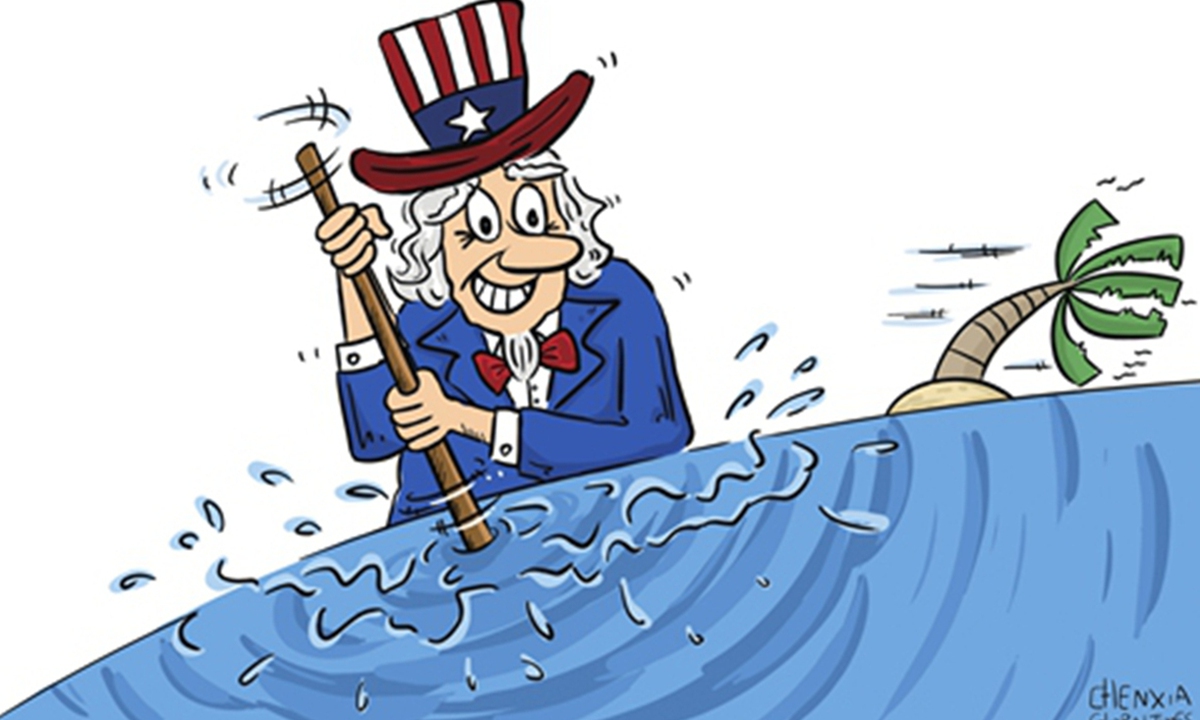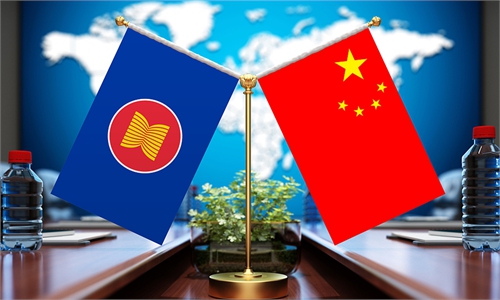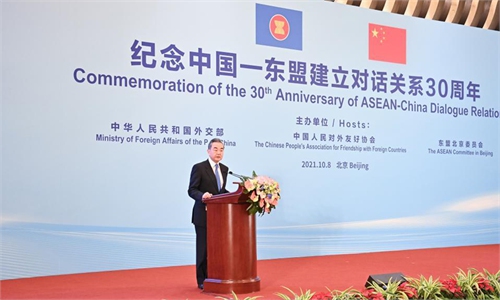
Illustration: Chen Xia/GT
According to Japanese media outlet the Nikkei, the Group of Seven (G7) countries are set to invite the 10-member Association of Southeast Asian Nations (ASEAN) to the United Kingdom for a joint face-to-face meeting of foreign ministers in early December. This has again raised questions of whether ASEAN will be roped in by Washington and other Western countries into an anti-China alliance. But the fact is ASEAN members are quite aware of the G7's subordinate position to the US. They know very well the pros and cons of engaging with G7.The G7's invitation clearly shows that the group is subordinate to Washington and the US Indo-Pacific Strategy. The Biden administration didn't make a fresh start in regional strategy. Instead, it has inherited the Indo-Pacific Strategy from its predecessor. However, Biden has shifted the focus from "America First" to reviving the US global leadership under the Indo-Pacific Strategy. The Biden administration is also more inclined to rely on the "rules-based international order" that the US accepts and place more emphasis on allies and partnerships.
Based on such strategic logic, the Biden administration has clarified a new vision of its Indo-Pacific Strategy. There are several general moving parts to it.
First, the US is an important part of the Indo-Pacific region, the security and prosperity of which is strategically significant to the US. Second, the US will continue to deepen bilateral relations with each of its Indo-Pacific partners, support ASEAN centrality as well as strengthen the US participation in Indo-Pacific affairs through multilateral mechanisms such as the Quad, the Mekong-US Partnership and APEC. Third, the US supports the so-called freedom of navigation and rejects China's "unlawful claims" in the South China Sea. Fourth, the US will continue to strengthen economic ties with its Indo-Pacific partners such as Southeast Asian countries on supply chains and trade. Fifth, the US will continue to cooperate with its Indo-Pacific partners and allies to address challenges of climate change and COVID-19 pandemic. Sixth, the US Indo-Pacific Strategy will be guided by values such as "human rights" and "democracy." In this way, the G7 is only a tool for the US to realize the new vision of its Indo-Pacific Strategy.
By engaging with ASEAN through the G7 platform, the US hopes to revive its leadership and enhance its influence in Southeast Asia. In particular, the topics of the possible dialogue between G7 countries and ASEAN members will include "the China threat," maritime security, supply chain, COVID-19 pandemic, climate change, terrorism, the Myanmar issue and other common challenges.
However, it's noticeable that ASEAN members have their own vision toward the Indo-Pacific region. They hope the region can be a connected and highly integrated one, with ASEAN at the center of its regional structure. They highlight dialogue and cooperation rather than competition in the Indo-Pacific. Therefore, ASEAN members welcome dialogue on maritime, economic, investment issues and in the regional security field. On COVID-19 prevention and control, trade, technology and maritime security, Vietnam, Indonesia and Malaysia have also explicitly expressed their willingness to cooperate with major countries including China and the US.
This being the case, ASEAN hopes to strengthen its influence through open cooperation, so as to consolidate its role as a center in the regional framework, and enhance its position on the international stage.
But as the US Indo-Pacific Strategy is becoming increasingly militarized and confrontational, what ASEAN will gain from possible dialogue with G7 is more likely to be concerns of being caught in competition among major powers and the strategic pressure of taking sides.
ASEAN is well aware of G7's vassal role, as well as the pros and cons of dialogues with G7. Through the Indo-Pacific outlook, ASEAN has shown cohesion, strategic resilience and adaptability amid complicated competition among major powers. This has been verified in the communications between ASEAN and the Biden administration. Their engagement with G7 will continue to prove it.
The author is deputy director with the College of ASEAN Studies at Guangxi University for Nationalities and a senior research fellow at the Charhar Institute. opinion@globaltimes.com.cn


